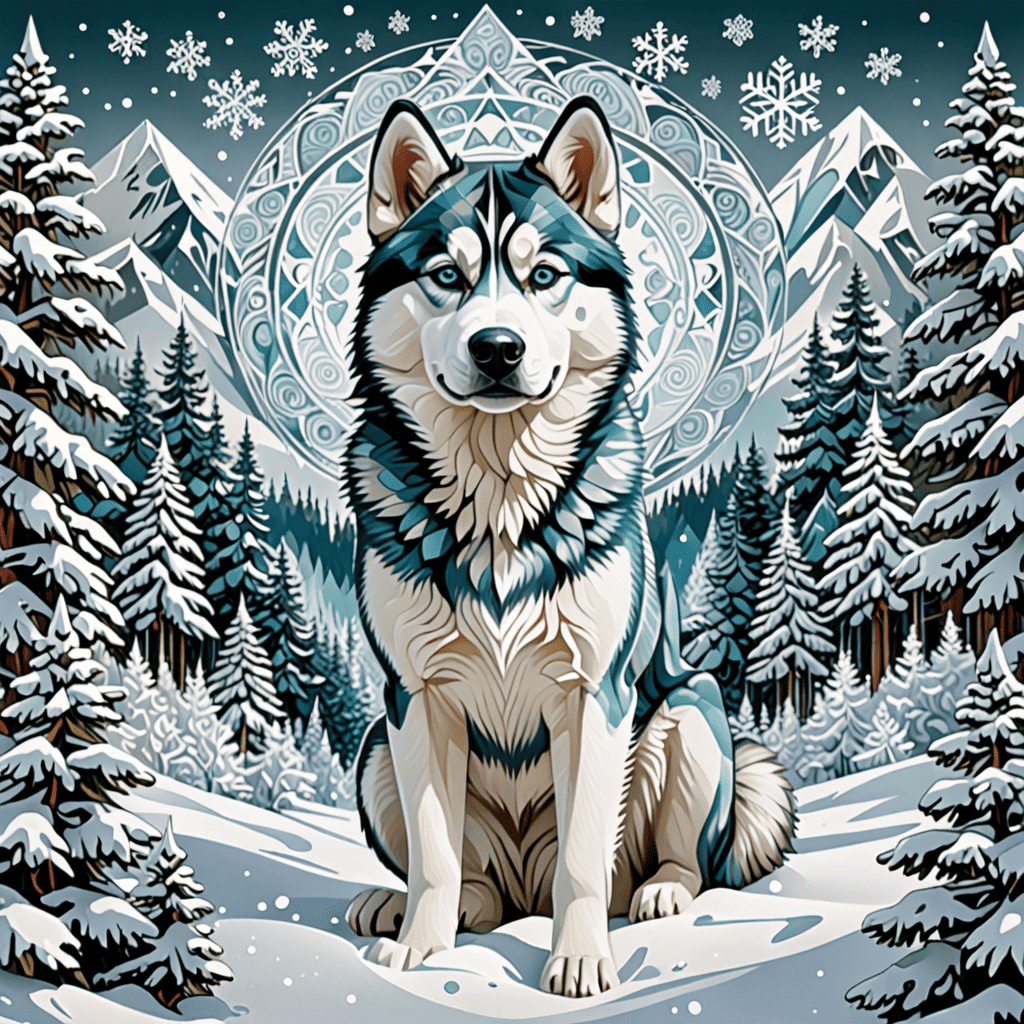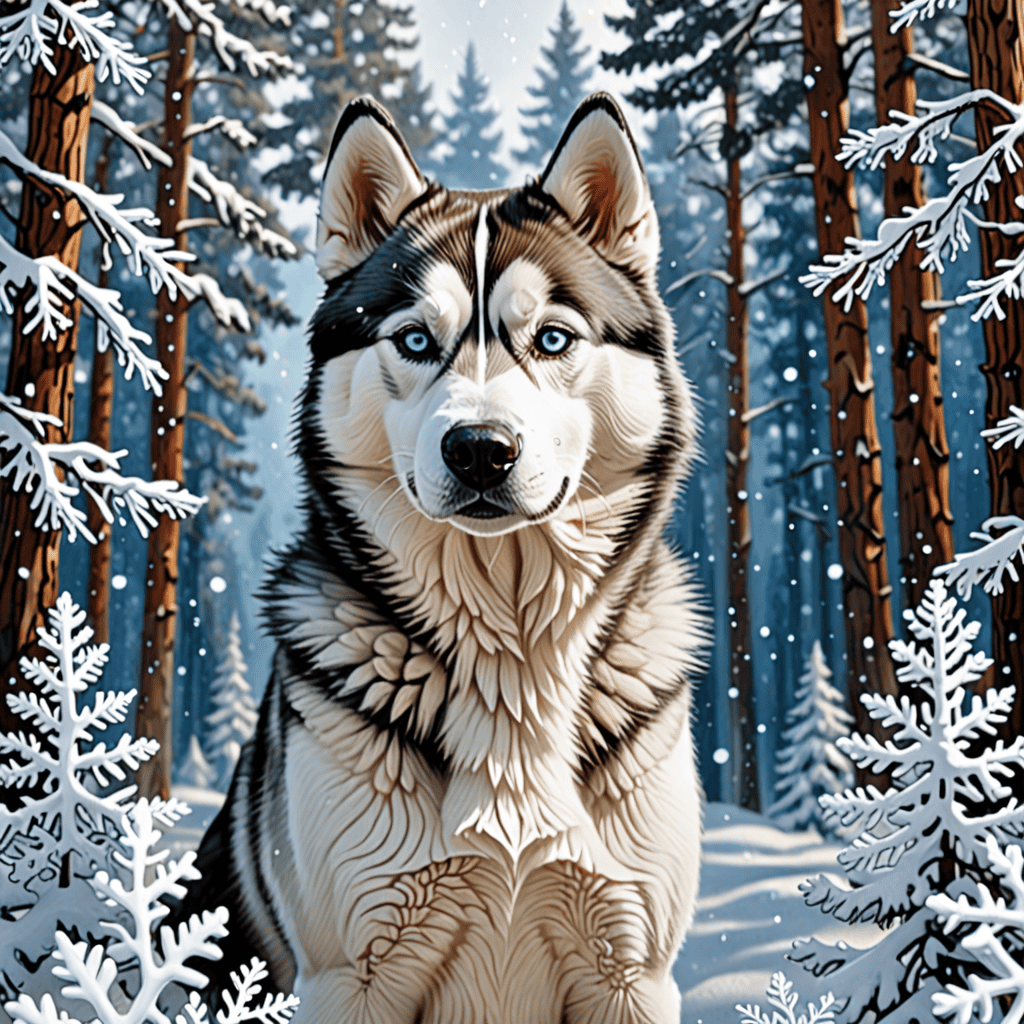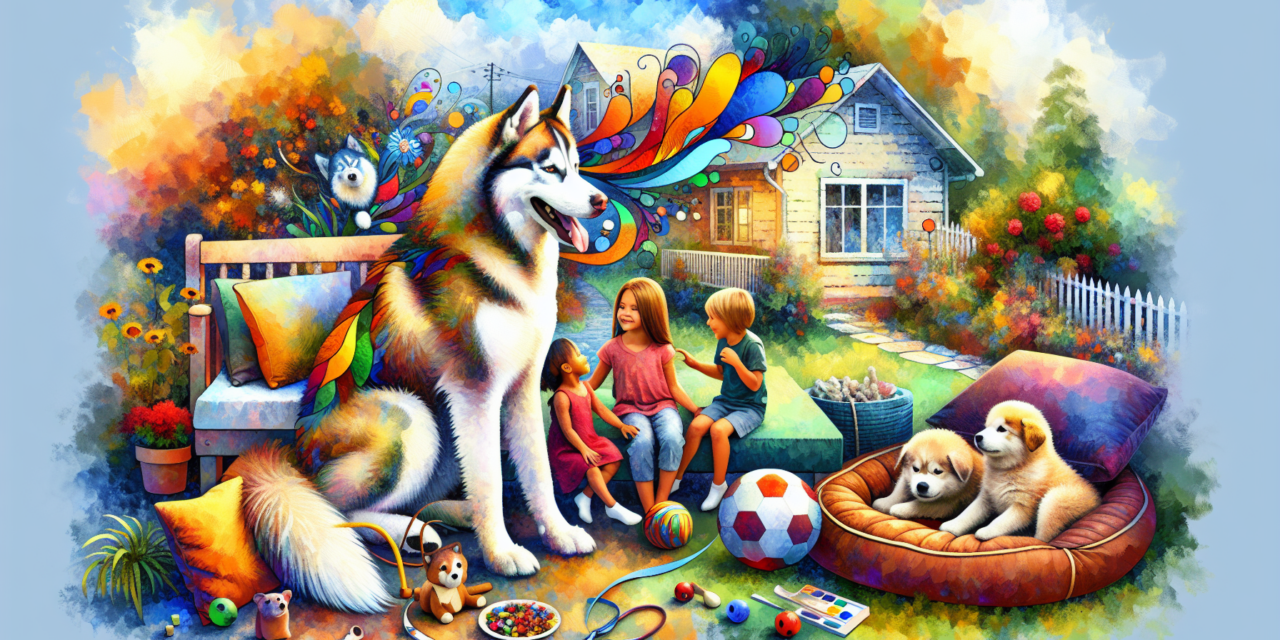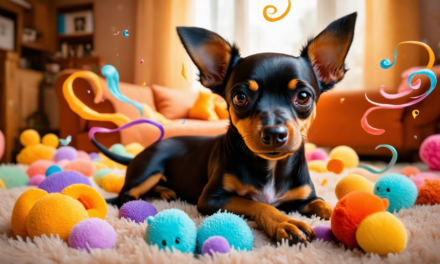Are you considering welcoming a husky dog into your family? Understanding the unique traits, care needs, and life expectancy of Siberian huskies is essential before making this commitment. In this article, we will explore whether a husky is a good family dog by delving into their temperament and characteristics. Additionally, we will discuss common mistakes in husky dog care and what not to do to ensure a happy and healthy pet. You’ll learn about the challenges and benefits of owning a husky, including their behavior when left alone and how to adapt your home for these energetic dogs. We will also cover important aspects like the Siberian husky lifespan and factors influencing husky dog price. Join us as we provide valuable insights to help you determine if a husky is the right fit for your family.
Is A Husky a Good Family Dog?
Understanding the Siberian Husky Temperament
Huskies can be excellent family dogs, but there are several factors to consider before bringing one into your home. Here’s a comprehensive overview:
- Temperament: Siberian Huskies are known for their playful, friendly, and even-tempered nature. They typically get along well with children and other dogs, making them suitable companions for families. However, their high energy levels mean they require regular exercise and stimulation.
- Energy Levels: Huskies are highly energetic and thrive on physical activity. They enjoy being around people and need daily exercise to prevent boredom, which can lead to destructive behaviors. Engaging in activities like running, hiking, or playing fetch is essential for their well-being.
- Size and Strength: As large and powerful dogs, Huskies can be boisterous, which may be overwhelming for younger children. It’s important to supervise interactions between Huskies and small children to prevent accidental knocks or injuries.
- Grooming Needs: Huskies have a thick double coat that sheds heavily, particularly during seasonal changes. Regular grooming is necessary to manage shedding and maintain coat health. This can be a commitment for families, especially during shedding seasons.
- Training Challenges: Huskies can be challenging to train, particularly for inexperienced dog owners. Their strong will and independent nature may lead to stubbornness. Consistent, positive reinforcement training methods are recommended, and early socialization is crucial to help them develop good manners.
- Health Considerations: Like all breeds, Huskies can be prone to certain health issues, including cataracts, hip dysplasia, and progressive retinal atrophy. Regular veterinary check-ups and a healthy diet are essential to mitigate these risks.
In conclusion, while Huskies can make wonderful family pets, they require dedicated owners who can meet their exercise, training, and grooming needs. Families considering a Husky should ensure they can provide an active lifestyle and the necessary training to foster a harmonious household. For more insights on choosing the right family dog, consider consulting resources from the American Kennel Club (AKC) or the Humane Society.
Husky Dog Traits and Characteristics
The Siberian Husky breed is characterized by several distinct traits that make them unique and appealing to families:
- Friendly Nature: Huskies are known for their sociable demeanor. They are generally friendly with strangers and other pets, which can make them great companions in a family setting.
- Intelligence: This breed is intelligent and curious, often requiring mental stimulation in addition to physical exercise. Puzzle toys and training exercises can help keep their minds engaged.
- Vocalization: Huskies are known for their vocalizations, which can include howling and “talking.” This trait can be entertaining but may also require some patience from family members.
- Adaptability: While they thrive in active environments, Huskies can adapt to various living situations as long as their exercise needs are met. They can live in homes with yards or apartments, provided they receive ample outdoor time.
- Affectionate: Huskies are affectionate dogs that enjoy being part of family activities. They often seek companionship and can form strong bonds with their owners.
Understanding these traits is essential for families considering a Husky dog. Their unique characteristics can enhance family life, provided that owners are prepared to meet their needs.

What Not to Do to a Husky?
Understanding the unique needs and behaviors of Siberian Huskies is essential for their well-being. Mistakes in their care can lead to behavioral issues and health problems. Here are some common pitfalls to avoid when caring for your husky dog.
Common Mistakes in Husky Dog Care
When it comes to caring for husky dogs, there are several critical mistakes that owners should avoid:
- Never Ignore Their Exercise Needs: Siberian Huskies are high-energy dogs that require significant daily exercise. Failing to provide adequate physical activity can lead to behavioral issues such as excessive barking, digging, or destructive behavior. Aim for at least 1-2 hours of vigorous exercise each day, including activities like running, hiking, or engaging in dog sports (American Kennel Club, 2023).
- Avoid Punishment-Based Training: Huskies are intelligent and independent, which means they respond poorly to harsh training methods. Instead, focus on positive reinforcement techniques, such as treats and praise, to encourage good behavior. This approach fosters a trusting relationship and enhances their willingness to learn (PetMD, 2023).
- Don’t Keep Them Confined: Siberian Huskies thrive in open spaces and should not be kept in small, confined areas for extended periods. If you live in an apartment, ensure you provide ample outdoor time and mental stimulation to prevent boredom and anxiety (The Spruce Pets, 2023).
- Never Neglect Socialization: Early socialization is crucial for Huskies to develop into well-adjusted adults. Expose them to various environments, people, and other animals from a young age to help them become more adaptable and less prone to anxiety or aggression (American Veterinary Society of Animal Behavior, 2023).
- Avoid Feeding Poor Quality Diets: Huskies require a balanced diet that meets their nutritional needs. Avoid low-quality dog foods that may lead to health issues. Consult with a veterinarian to determine the best diet for your Husky’s age, weight, and activity level (Veterinary Nutrition, 2023).
By adhering to these guidelines, you can ensure a happy and healthy life for your Siberian Husky while fostering a strong bond based on trust and understanding.
Understanding Husky Behavior and Needs
To effectively care for a husky dog, it is vital to understand their unique behavior and needs. Siberian Huskies are known for their friendly and outgoing nature, but they also possess specific traits that require attention:
- High Energy Levels: Huskies are bred for endurance and require ample exercise to channel their energy positively. Incorporating activities like running or agility training can help keep them physically and mentally stimulated.
- Strong Pack Instincts: As pack animals, Huskies thrive on companionship. They can experience separation anxiety if left alone for long periods, making it essential to provide social interaction and mental engagement.
- Intelligence and Independence: Siberian Huskies are intelligent but can be stubborn. Consistent training using positive reinforcement is crucial for effective communication and obedience.
- Vocalization: Huskies are known for their vocal nature, often “talking” to express their needs or feelings. Understanding their vocalizations can enhance your relationship and help address their needs.
By recognizing these behaviors and needs, you can create a nurturing environment that supports your husky’s well-being and happiness.
Can a Husky Be Left Alone?
Huskies are known for their high energy levels and social nature, making them unique in their needs compared to other dog breeds. Here’s a comprehensive look at whether a husky can be left alone:
Husky Dog Loneliness and Separation Anxiety
Huskies are inherently social animals that thrive on interaction with humans and other dogs. Leaving them alone for extended periods can lead to feelings of loneliness and anxiety. According to the American Kennel Club, this breed is prone to separation anxiety, which can manifest in destructive behaviors such as chewing furniture or excessive barking.
Additionally, huskies require significant physical activity—typically at least 1-2 hours of exercise daily. If left alone without adequate exercise, they may become restless and engage in undesirable behaviors. Regular walks, playtime, and mental stimulation are crucial to keeping them happy and healthy. Early training and socialization can help a husky adapt to being alone for short periods. Gradual desensitization to being left alone can reduce anxiety. Techniques such as crate training can provide a safe space for your husky when you are not home.
Tips for Leaving Your Husky Alone Safely
While some huskies can tolerate being left alone for a few hours, it is generally not advisable to leave them alone for more than 4-6 hours at a time. If longer absences are necessary, consider hiring a dog walker or enrolling them in doggy daycare to meet their social and exercise needs. Be attentive to signs of distress in your husky, such as excessive barking, whining, or destructive behavior. These behaviors indicate that your dog is struggling with being left alone and may require more companionship or structured activities.
In conclusion, while it is possible for a husky to be left alone for short periods, it is essential to consider their social needs, exercise requirements, and potential for separation anxiety. Providing adequate training, socialization, and mental stimulation can help mitigate issues related to being left alone. For more personalized strategies, consider consulting with a professional dog trainer or a wellness coach specializing in canine behavior.
Can a Husky Be a House Dog?
Yes, a Siberian Husky can be a house dog, but it is crucial to understand their specific needs to ensure a harmonious living environment. Here are key considerations for keeping a Husky indoors:
- High Energy Levels: Huskies are known for their high energy and playful nature. They require at least 1-2 hours of vigorous exercise daily, which can include running, hiking, or engaging in interactive play. Regular outdoor activities are essential to prevent boredom and destructive behaviors.
- Mental Stimulation: In addition to physical exercise, Huskies need mental challenges to stay engaged. Puzzle toys, obedience training, and agility exercises can help stimulate their minds. Incorporating training sessions into their daily routine can also strengthen your bond and improve their behavior.
- Social Interaction: Huskies are social animals that thrive on companionship. They do best in homes where they can interact with their families regularly. Leaving them alone for extended periods can lead to anxiety and behavioral issues.
- Temperature Considerations: While Huskies have a thick double coat that protects them in cold weather, they can adapt to indoor living. However, it’s important to maintain a comfortable indoor temperature, as they can overheat in warm environments. Providing a cool, shaded area for them to rest is beneficial.
- Balanced Routine: Establishing a structured daily routine that includes both indoor and outdoor activities is vital. This balance helps ensure that your Husky remains happy and healthy while living indoors.
Incorporating these practices can lead to a fulfilling life for both you and your Husky. For additional support, consider resources like Wellness Coaching For Life, which can provide guidance on maintaining a healthy lifestyle for both pets and their owners.
Adapting Your Home for a Siberian Husky
To create a suitable environment for your Siberian Husky, consider the following adaptations:
- Space: Ensure your home has enough space for your Husky to move around freely. A designated area for their bed and toys can help them feel secure.
- Safety: Husky dogs are known for their curiosity and escape artistry. Secure your yard and ensure windows and doors are dog-proof to prevent them from wandering off.
- Comfort: Provide a comfortable dog bed that accommodates their size. Huskies are medium to large dogs, so a spacious bed will help them rest well.
- Interactive Toys: Invest in durable toys that can withstand their chewing and playing habits. This will keep them entertained and mentally stimulated.
By making these adjustments, you can create a welcoming home for your Husky that meets their needs and enhances their quality of life.
Best Practices for Indoor Husky Care
To ensure your Husky thrives indoors, follow these best practices:
- Regular Exercise: Schedule daily walks and playtime to keep your Husky physically fit and mentally sharp.
- Consistent Training: Implement positive reinforcement training techniques to teach commands and reinforce good behavior.
- Healthy Diet: Feed your Husky high-quality dog food suitable for their age and activity level. Consult with your veterinarian for recommendations on the best food for Huskies.
- Grooming: Regular brushing is essential to manage shedding and maintain their coat health. Huskies shed heavily, especially during seasonal changes.
By adhering to these practices, you can foster a happy and healthy environment for your Husky, ensuring they adapt well to life as a house dog.

Is Owning a Husky Difficult?
Owning a Siberian Husky can indeed be challenging for many potential dog owners due to several key factors that require careful consideration. Here are the primary aspects to keep in mind:
Challenges of Husky Dog Ownership
1. **Exercise Requirements**: Siberian Huskies are an active breed that requires substantial daily exercise—typically at least 1-2 hours. They thrive on physical activities such as running, hiking, and engaging in dog sports. Insufficient exercise can lead to behavioral issues, including excessive barking or destructive tendencies (American Kennel Club, 2021).
2. **Shedding and Grooming**: Huskies are known for their thick double coats, which shed heavily, particularly during seasonal changes. Regular grooming—at least once a week—is essential to manage shedding and maintain coat health. During shedding season, more frequent brushing may be necessary to reduce hair around the home (PetMD, 2022).
3. **Temperament and Training**: Huskies are intelligent but can be independent and stubborn, making training a challenge. Early socialization and consistent, positive reinforcement training methods are crucial for developing good behavior. They respond well to engaging training techniques that keep their minds stimulated (The Spruce Pets, 2023).
4. **Vocalization**: This breed is known for its unique vocalizations, including howling. While some owners appreciate this trait, it can be a nuisance in certain living situations, particularly in apartments or close neighborhoods (DogTime, 2022).
5. **Escape Artists**: Huskies are notorious for their ability to escape from yards. They require secure fencing and supervision during outdoor activities. Their strong prey drive can lead them to chase after small animals, necessitating careful management during walks (Cesar’s Way, 2023).
6. **Health Considerations**: Like all breeds, Huskies are prone to specific health issues, including hip dysplasia and eye conditions. Regular veterinary check-ups and a healthy diet are essential for maintaining their well-being (Veterinary Partner, 2022).
Benefits of Having a Husky as a Family Pet
Despite the challenges, owning a husky dog can be incredibly rewarding. Here are some benefits to consider:
1. **Loyal Companionship**: Huskies are known for their friendly and affectionate nature. They often form strong bonds with their families, making them excellent companions for both adults and children.
2. **Active Lifestyle**: If you enjoy outdoor activities, a Siberian Husky can be the perfect partner. Their high energy levels encourage owners to engage in regular exercise, promoting a healthier lifestyle for both you and your pet.
3. **Intelligence and Playfulness**: Huskies are intelligent and curious dogs. Their playful demeanor can bring joy and entertainment to your household, making them a delightful addition to family life.
4. **Unique Personality**: The husky dog breed is known for its distinct personality traits, including their playful antics and vocalizations. This uniqueness can add a fun dynamic to your home.
5. **Social Nature**: Huskies typically get along well with other dogs and pets, making them a great choice for multi-pet households. Their sociable nature can enhance interactions within the family.
In conclusion, while owning a Siberian Husky can be rewarding, it demands a significant commitment in terms of time, energy, and resources. Prospective owners should evaluate their lifestyle and ability to meet the breed’s needs before making a decision. For more insights on managing the challenges of Husky ownership, resources like Wellness Coaching For Life can provide valuable guidance on maintaining a balanced and fulfilling relationship with your pet.
Do Huskies Like to Sleep with Their Owners?
Understanding Husky Sleeping Habits
Huskies are known for their strong pack mentality, and sleeping near their owners is a significant way to enhance this bond. This closeness fosters emotional connections, making them feel more secure and loved. Being close to their owner provides huskies with a sense of safety, which is crucial for their relaxation during sleep. According to a study published in the Journal of Veterinary Behavior, dogs that sleep near their owners often exhibit lower stress levels and improved sleep quality.
While many huskies enjoy snuggling up with their owners, it’s important to note that individual personalities play a significant role. Some huskies may be more independent and prefer their own sleeping space, influenced by their upbringing and socialization experiences. Proper training and socialization are essential in shaping a husky’s sleeping habits. Engaging in positive reinforcement training can encourage a husky to feel more comfortable sleeping close to their owner. Resources like the American Kennel Club emphasize the importance of early socialization in developing a well-adjusted dog.
It’s also worth noting that a husky’s health can impact their sleeping preferences. Regular veterinary check-ups can help ensure that any underlying health issues are addressed, which may influence their desire to sleep close to their owners.
Creating a Comfortable Sleeping Environment for Your Husky
To ensure your husky enjoys a restful sleep, it’s essential to create a comfortable sleeping environment. Here are some tips:
- Choose the Right Bed: Invest in a high-quality dog bed that provides adequate support for your husky’s size and weight. A bed with orthopedic support can be beneficial, especially for older huskies.
- Maintain a Comfortable Temperature: Huskies have thick fur, so ensure their sleeping area is not too hot. A cool, well-ventilated space will help them sleep better.
- Establish a Routine: Huskies thrive on routine. Establishing a consistent bedtime can help your husky feel secure and ready for sleep.
- Provide a Safe Space: If your husky prefers their own space, create a cozy corner with their bed and favorite toys. This can help them feel secure while still being close to you.
By understanding your husky’s sleeping habits and preferences, you can foster a deeper bond and create a harmonious living environment. For more tips on husky dog care, explore our resources.
Husky Price and Lifespan
Understanding the husky price and lifespan is crucial for anyone considering bringing a husky dog into their home. The siberian husky is not only a beautiful breed but also requires a commitment to their care and well-being. In this section, we will explore the factors influencing the price of huskies and delve into their life expectancy and care needs.
Factors Influencing Husky Dog Price
The price for a siberian husky can vary significantly based on several factors:
- Breeder Reputation: Reputable breeders often charge more due to their commitment to health testing and responsible breeding practices. Prices for husky puppies for sale can range from $800 to $2,500, depending on the breeder’s credentials.
- Location: The cost of a husky dog for sale can also be influenced by geographic location. Urban areas may have higher prices due to demand.
- Pedigree: Huskies with champion bloodlines or show potential typically command higher prices. This is particularly true for husky dog breeding focused on maintaining breed standards.
- Age: Younger puppies, especially those under 12 weeks, are often more expensive than older dogs. The puppy husky for sale market tends to be more competitive.
When considering a husky, it’s essential to factor in not just the initial purchase price but also ongoing costs such as food, grooming, and veterinary care. For more information on caring for huskies, check out our article on essential husky dog care tips.
Understanding Siberian Husky Life Expectancy and Care Needs
The siberian husky lifespan typically ranges from 12 to 15 years. Factors that can influence their longevity include:
- Genetics: Health issues can be hereditary, so it’s vital to choose a reputable breeder who screens for common genetic conditions.
- Diet: Providing the best food for huskies is crucial for their health. A balanced diet tailored to their specific needs can help prevent obesity and related health issues.
- Exercise: Huskies are energetic dogs that require regular exercise. Daily walks and playtime are essential for maintaining their physical and mental health.
- Veterinary Care: Routine check-ups and vaccinations are necessary to ensure a long, healthy life. Regular vet visits can help catch potential health problems early.
Understanding how long do huskies live and their care needs will help you provide a loving and healthy environment for your new pet. For more insights on husky characteristics and temperament, visit our page on husky dog characteristics.













